The IQs Of All Of Your Favorite U.S. Presidents
The President of the United States is supposed to be a brilliant leader, evaluator, diplomat, and economist. But, are the presidents really all that smart? Here are your favorite presidents' IQs based on a variety of studies that have been conducted over the years.
These studies make estimates on a number of factors including previously published assessments of IQ as well as intellectual brilliance and openness to experience, both believed to be important to intelligence.
Calvin Coolidge

Calvin Coolidge first started out as a lawyer in Massachusetts before becoming the governor of the state. Coolidge was a quiet man, and he was also on the higher end of intelligence among the people who set foot in the White House.
Someone visiting the White House bet Coolidge he could make Coolidge say more than two words. Coolidge simply responded to the better, "You Lose." Considered soft-spoken and thoughtful, "Silent Cal" had an estimated IQ between 111 and 141, according to a 2006 study in the Political Psychology journal.
Ronald Reagan
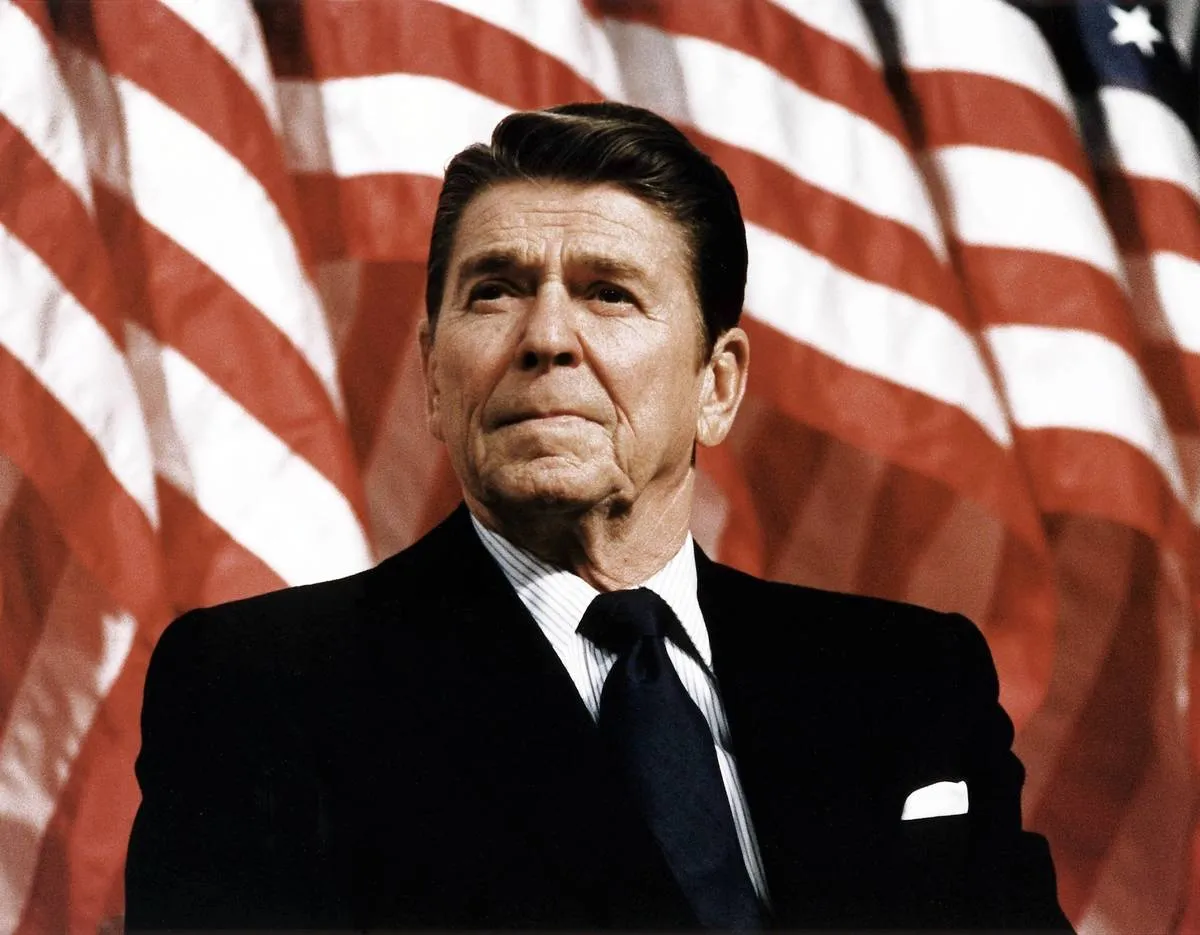
Ronald Reagan was famous for being the poster child and defining president of the Republican party. His presidency focused heavily on his brainchild, which was labeled "Reaganomics." His economic policy focused on a tax rate reduction, control of money supply, and reduction in government spending. He also saw the end of the Cold War with Russia and oversaw the tearing down of the Berlin Wall and the collapse of the USSR.
Ronald Reagan was one of the most well-loved presidents in the modern era and had one of the highest approval ratings. At the end of his administration, Ronald Reagan's approval rating was a shocking sixty-eight percent, which was the same as Franklin D. Roosevelt and Bill Clinton. The 2006 study in Political Psychology estimates his IQ between 118 and 141.
Richard Nixon
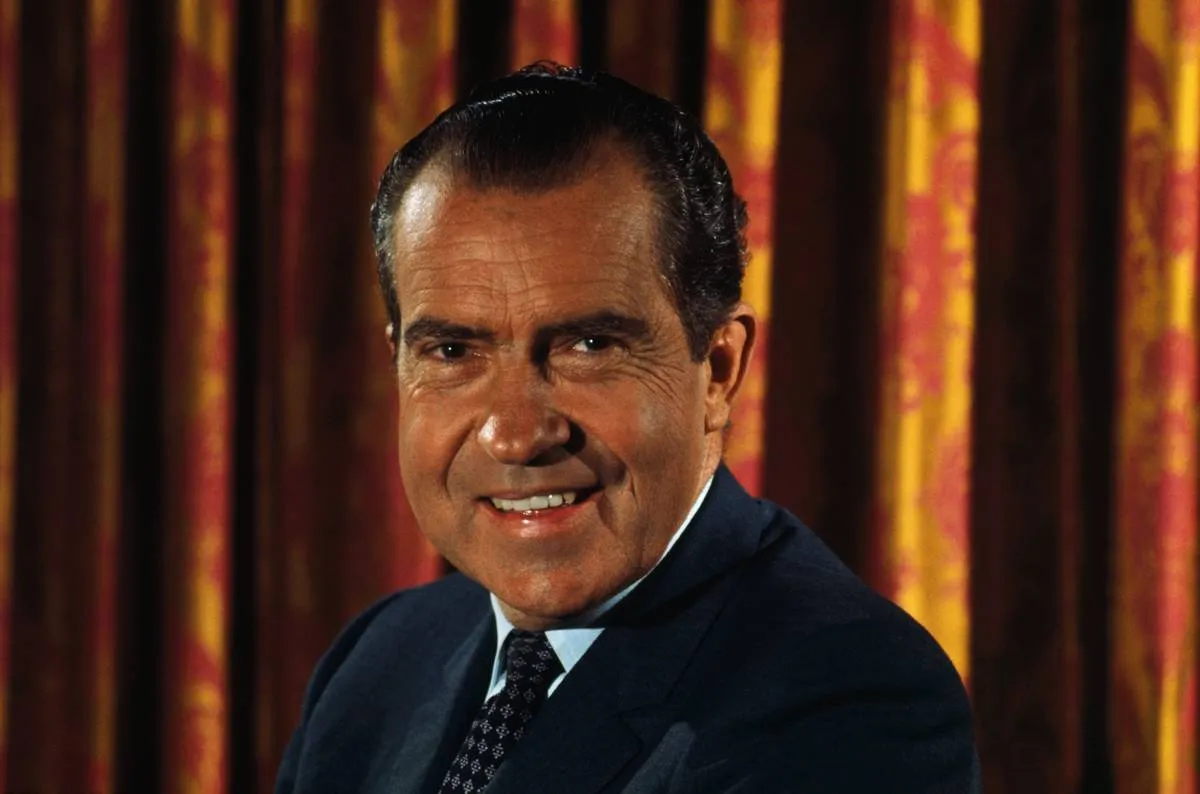
Richard Nixon had many devoted fans but was also one of the most disliked presidents of all time. Richard Nixon is best remembered for his involvement in the Watergate scandal when he and other Republicans hacked into the Democratic headquarters located at the Watergate Hotel in Washington D.C.
Nixon focused heavily on trying to end the space race in the 1970s, which was an element of the Cold War. Nixon made it his mission to limit funding for the Space Administration, and Political Psychology estimated his IQ between 118 and 142.
George Washington
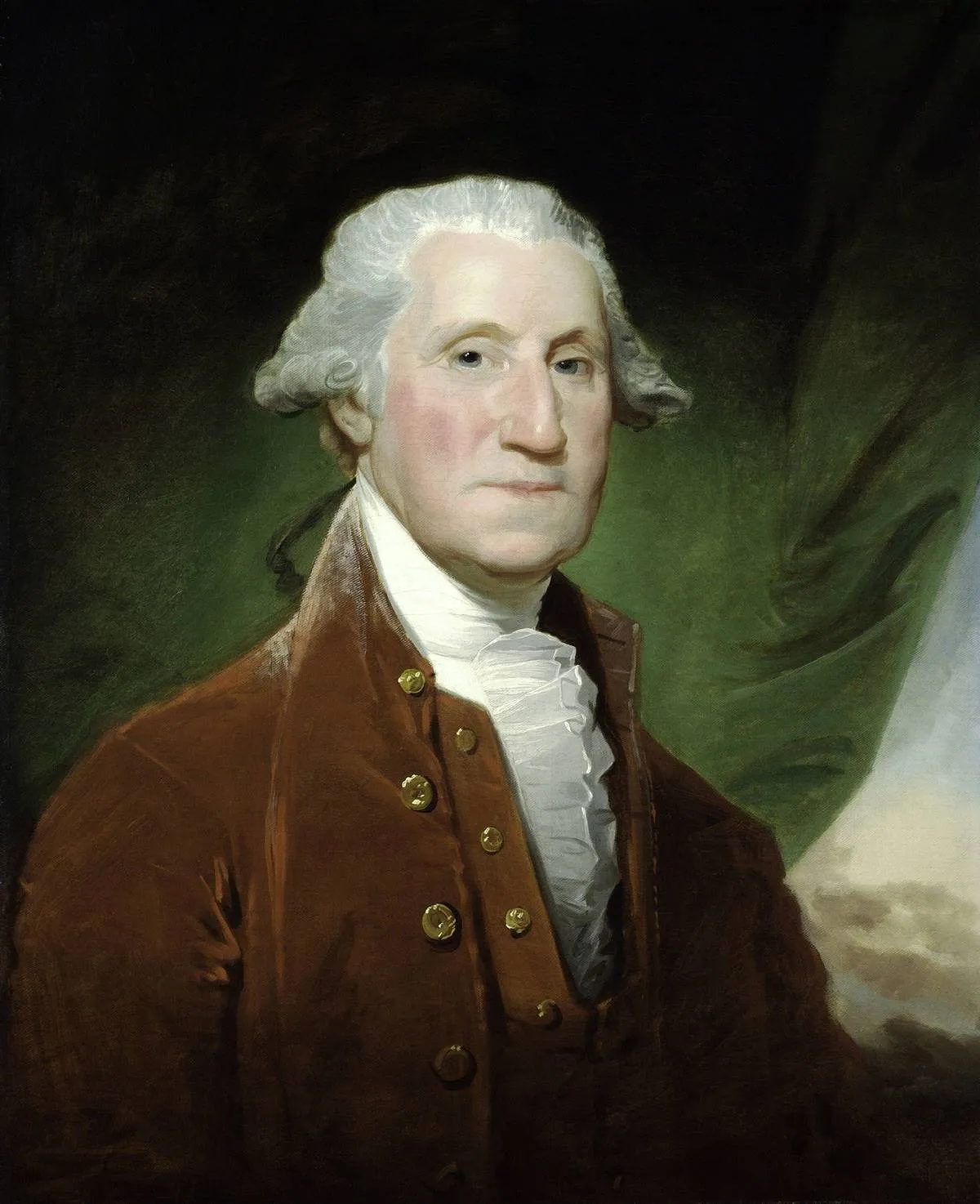
George Washington was the first president of the United States and is known today for being an amazing battle strategist. He is credited with the strategy behind the Battle of Yorktown and with a successful American Revolution. But, what was his IQ?
When it comes to IQs, there are some numbers to know. Anything above 140 is considered a genius, while anything between 120 and 140 is said to belong to a person with superior knowledge. Indeed, those are precisely the ranges Political Psychology estimated for his IQ, which was between 125 and 140.
Lyndon Johnson
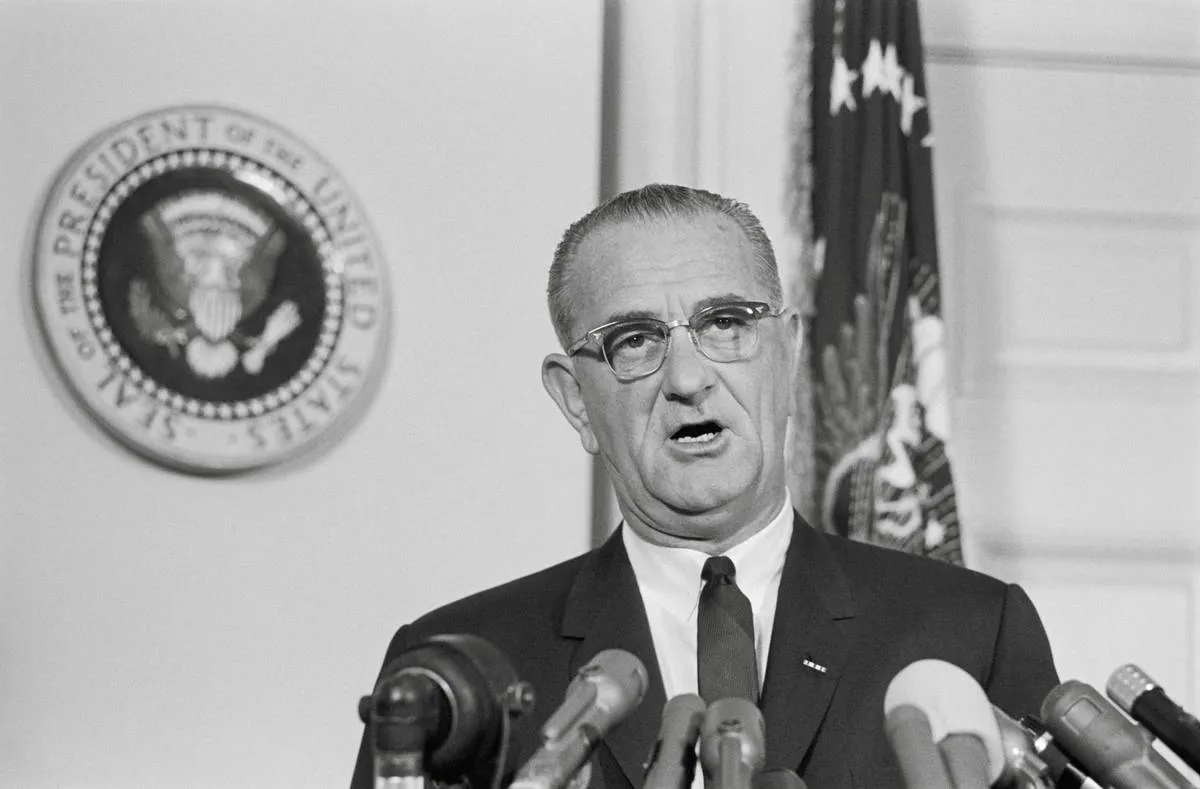
Some people loved Lyndon Johnson and some people absolutely despised Lyndon Johnson, but that's just how the 1960s were. Johnson was the president in power during the tumultuous Vietnam War and was described as escalating the United States' involvement.
Lyndon B. Johnson, or LBJ, assumed the role of president after JFK's tragic assassination. A 2006 study in Political Psychology estimated his IQ at between 114 and 140.
Abraham Lincoln
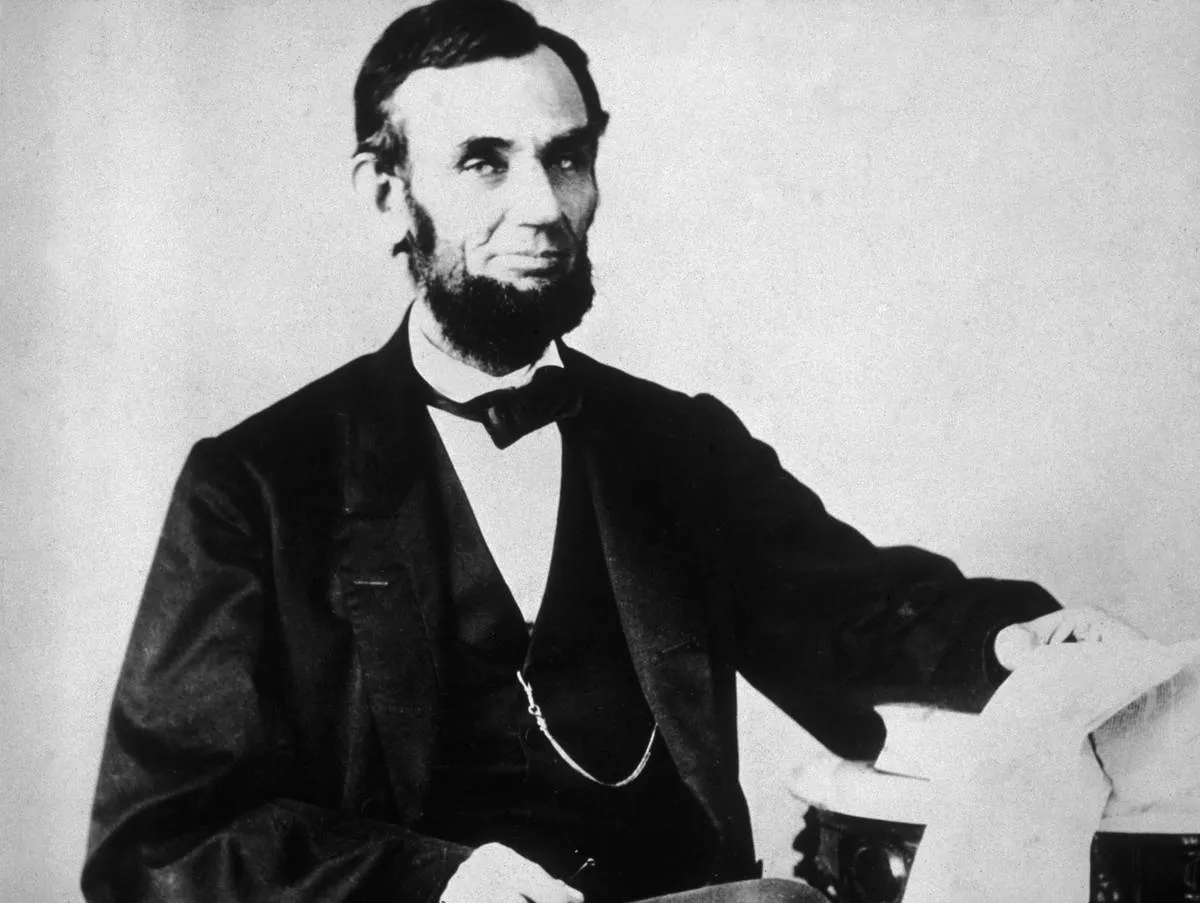
Abraham Lincoln is one of the most well-thought-of and respected presidents. He is considered the ultimate abolitionist and the reason for the end of slavery.
Abraham Lincoln's intelligence is not only proven by what he did during his presidency but also by his capabilities to pursue his dreams. Abraham Lincoln failed the bar exam and even worked as a boatman before achieving his law degree. As for his IQ, Political Psychology estimated the range between 125 and 150.
George H. W. Bush
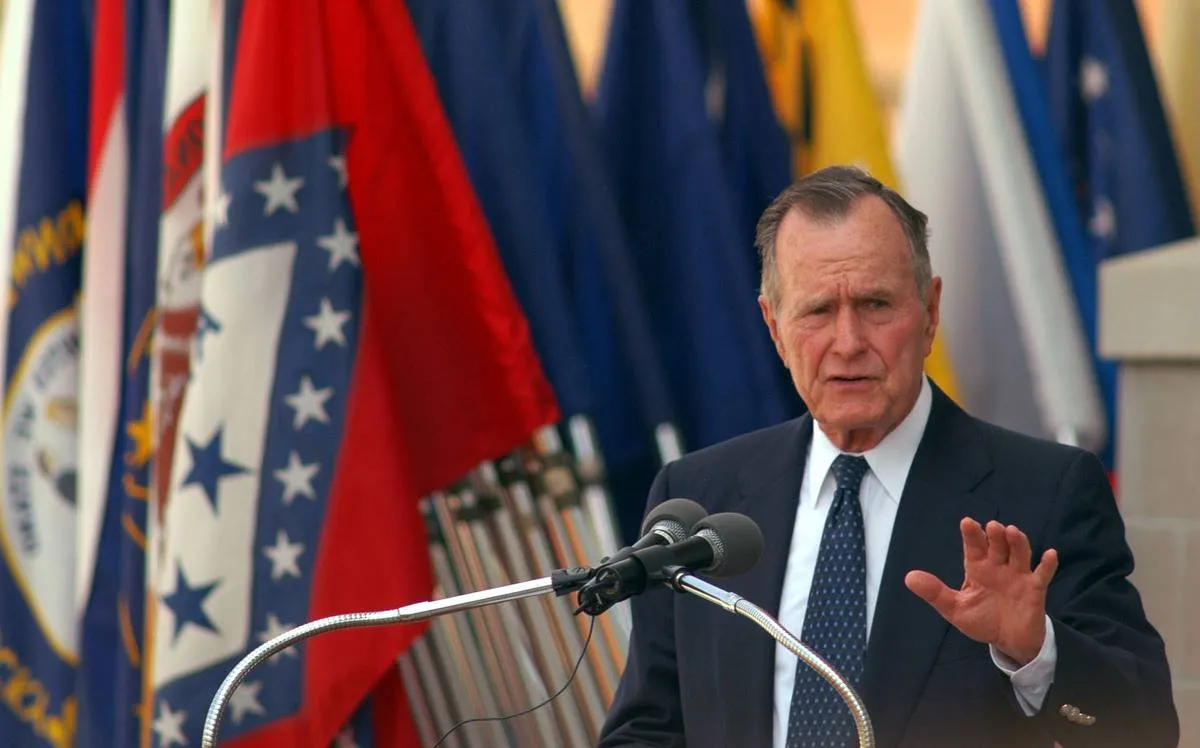
The late father of George W. Bush made quite a name for himself and the rest of the newly reformed Republican party. Bush Sr. and his administration oversaw a deficit in the United State's economy by increasing taxes for the working class. This went against Republican values and was a huge loss for Bush.
The economy under Bush went into a growing recession, which prompted voters to vote for Bill Clinton in the 1992 election. Although Political Psychology estimated Bush's IQ at between 116 and 143, it didn't help his presidency.
Teddy Roosevelt
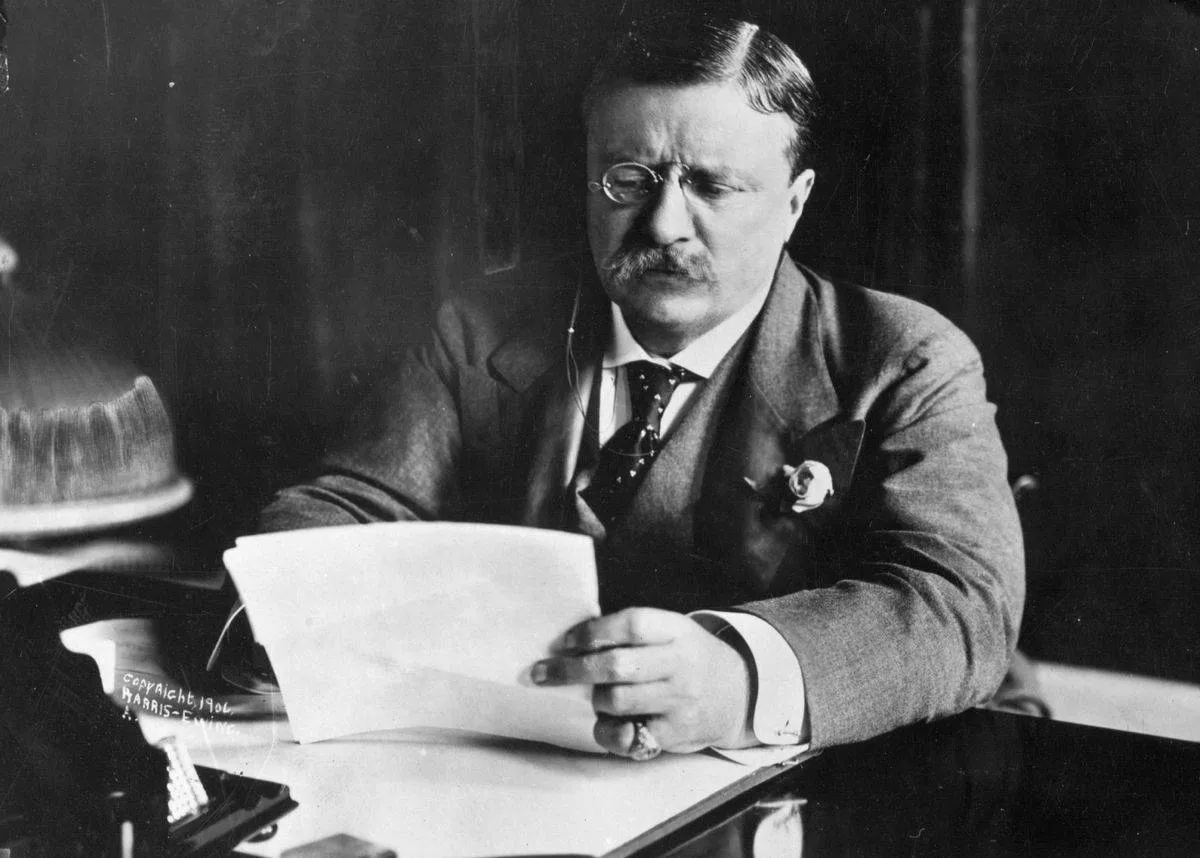
Theodore Roosevelt served as the 26th president of the United States and is still remembered for his wise words and keen military strategies. Roosevelt was known for breaking up the trusts and monopolies of the railroad companies to help working-class citizens. He was also recognized for perfecting and preserving thousands of acres of land for national parks around the country.
Theodore Roosevelt was a president who lived for and helped the average American. He is known for creating more economic stability among the working class. Historians credit Roosevelt with getting rid of corruption in the economy and Political Psychology estimated his IQ between 129 and 153.
Andrew Jackson

Although Andrew Jackson was credited for his military acumen in the lead-up to his election as America's seventh president, his administration has also been historically criticized for acts of genocide against many of the nation's Native American populations, who were forcibly relocated across the Trail of Tears.
Jackson was also known for his bloodthirsty personality at large, as he was reportedly involved in up to 103 duels throughout his life. Nonetheless, Political Psychology estimated his IQ between 110 and 145.
Franklin Delano Roosevelt
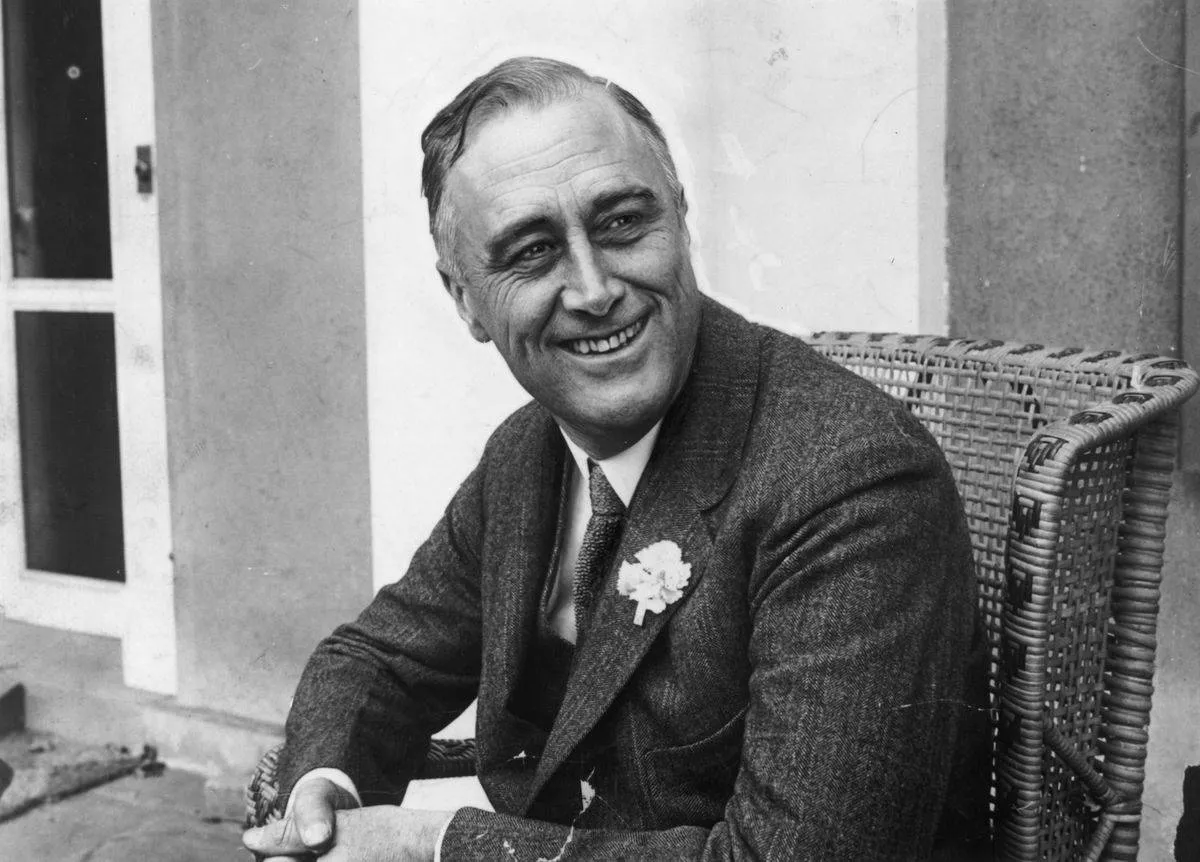
Franklin Delano Roosevelt, or FDR, is considered the genius behind modern economics and the recreation of the American economy after the Great Depression. FDR's biggest claim to fame is his New Deal, which created public projects like the Empire State Building and Tennessee Valley Authority to give working-class Americans jobs.
FDR's administration also repealed prohibition, which many can thank him for! The 32nd president of the United States' IQ was estimated between 127 and 150 by Political Psychology.
Barack Obama
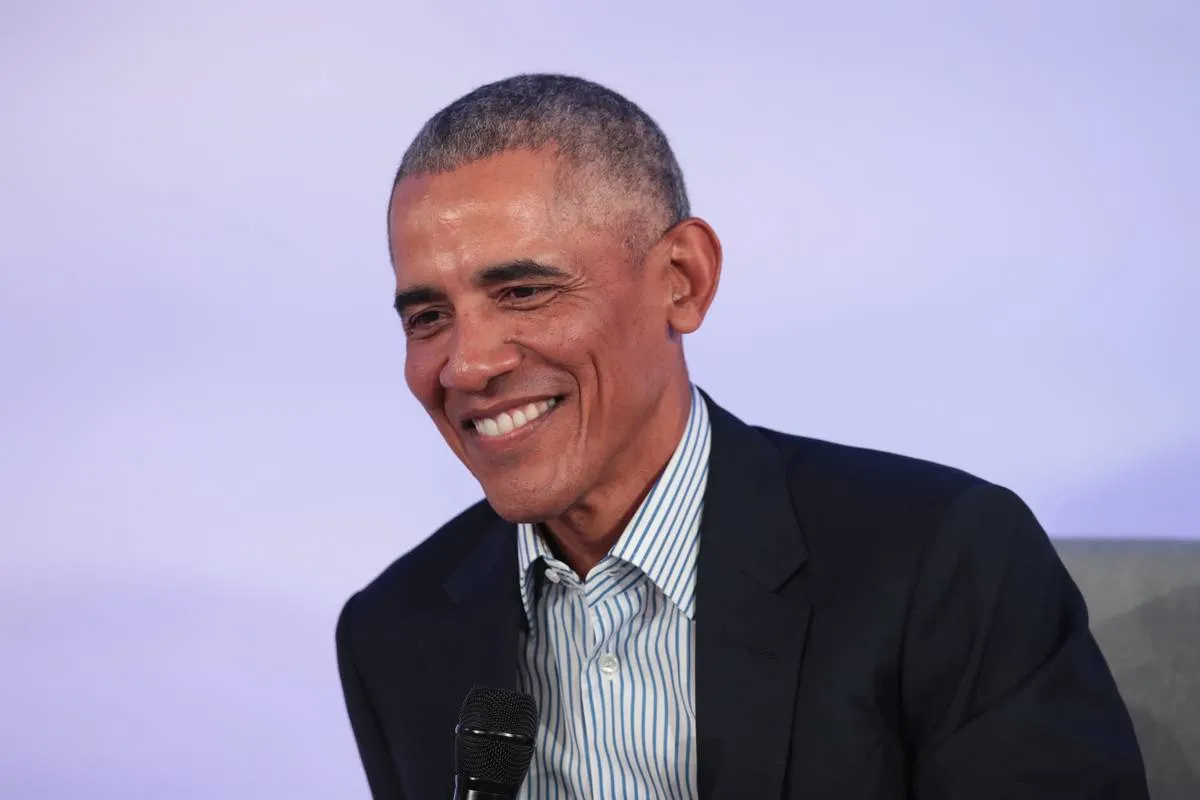
Barack Obama served as the 44th president from 2009 to 2017 and was the first-ever African American to hold the office. Born and raised in Honolulu, Hawaii, Obama is the son of parents hailing from Kenya and Kansas.
After leaving office in 2017, Obama and his wife Michelle continued to reside in Washington, D.C. Presidential historian Barbara Perry told Voice Of America News that Obama is likely in the top five for intelligence among presidents throughout American history, suggesting his IQ could even eclipse 145.
John Adams

John Adams was the second president of the United States, but he is known more for his participation in the creation of the Declaration of Independence. As a representative from Boston, John Adams proposed the thought of independence to the Continental Congress and even created the Declaration Committee, including Thomas Jefferson.
Before the American Revolution, John Adams was one of the most successful lawyers in Boston, defending both patriots and the British. His knowledge of law was the basis for many of the details in the Declaration of Independence. Political Psychology estimated his IQ at between 120 and 155.
Jimmy Carter
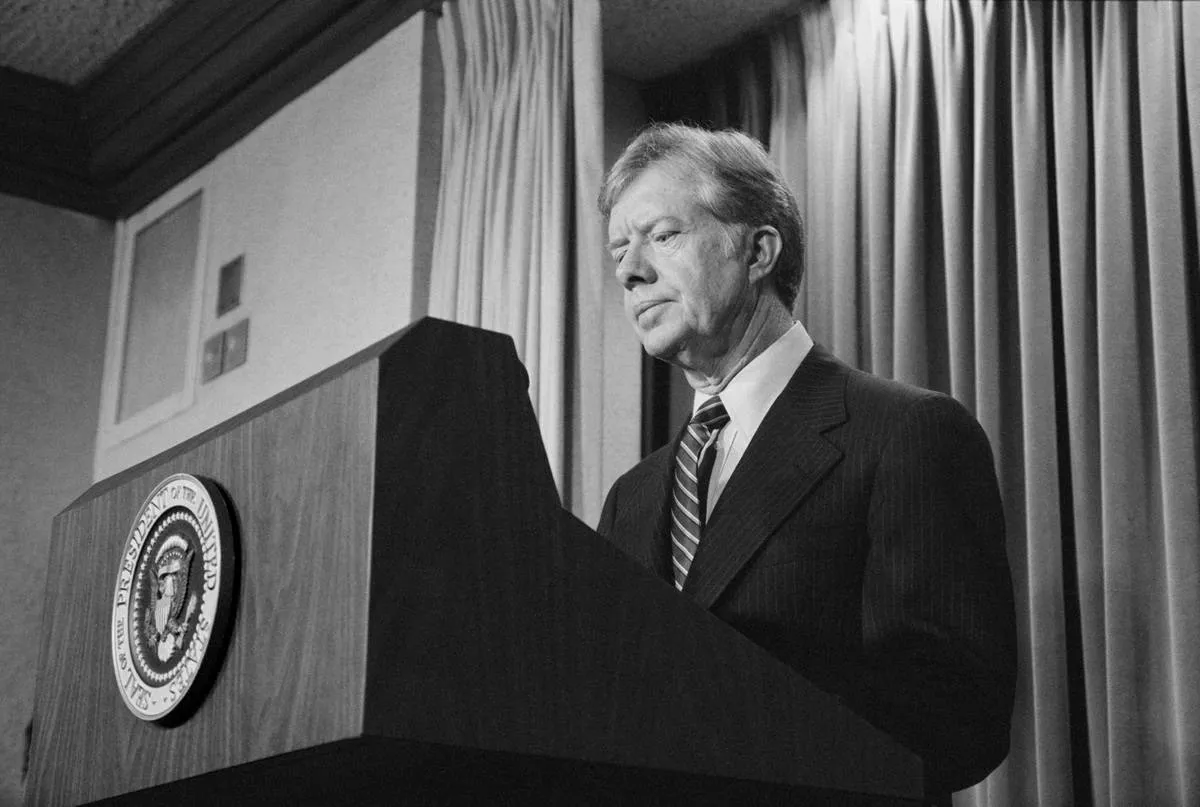
Many people believe that 39th President Jimmy Carter did more for the United States after he left office, as he was awarded the Nobel Peace Prize for his work with the Carter Center.
The Carter Center was created in 1982 and is an organization that aims to advance human rights and alleviate human suffering. The Carter Center is also committed to helping grow crops in areas of Africa with critical food insecurity. Political Psychology estimates his IQ between an impressive range of 130 and 156.
Bill Clinton
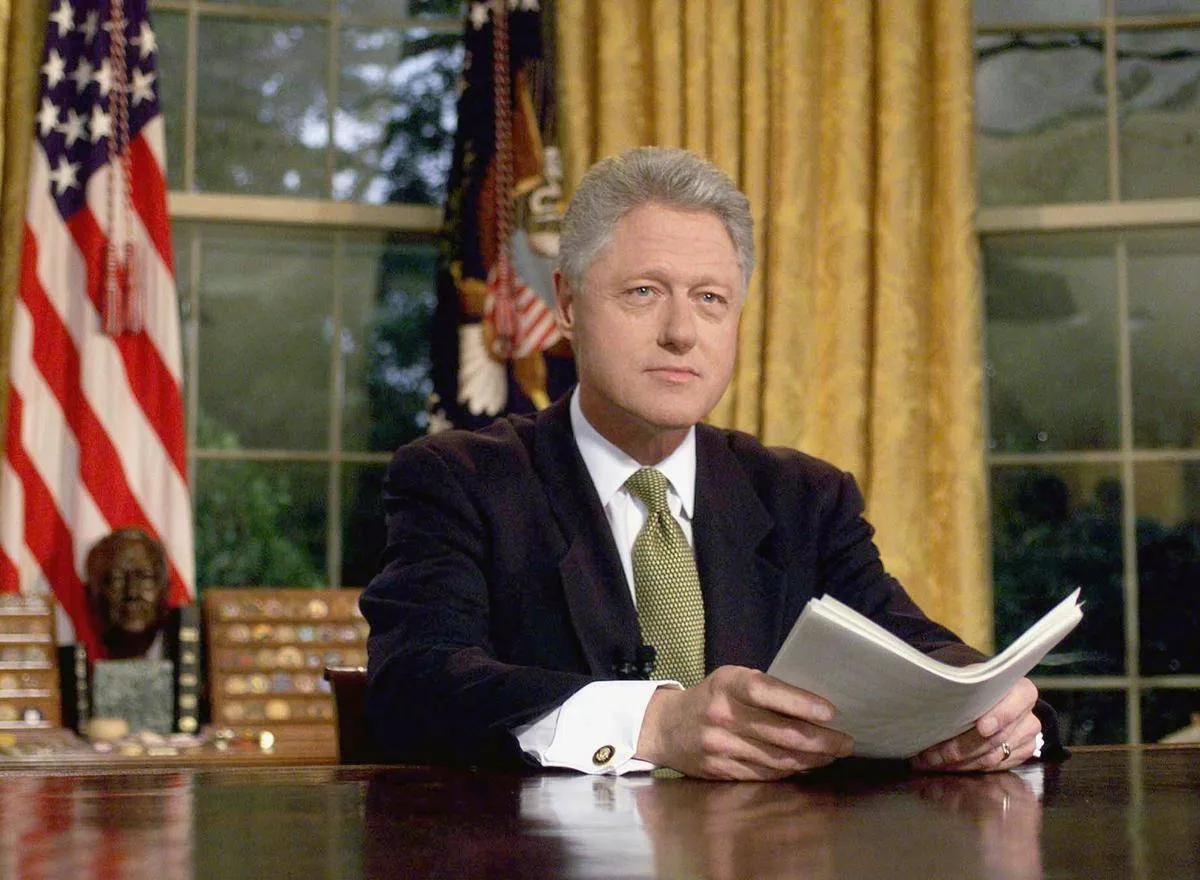
The 42nd president of the United States, serving from 1993 to 2001, Bill Clinton was the governor and attorney general of Arkansas before rising to the presidency.
Although his presidency was marked by controversy, Clinton was also credited for signing the Family and Medical Leave Act of 1993, and for leading a policy of fiscal conservatism that helped to reduce the deficit. Political Psychology also had a sky-high range for his estimated IQ, putting him between 135 and 159.
John F. Kennedy
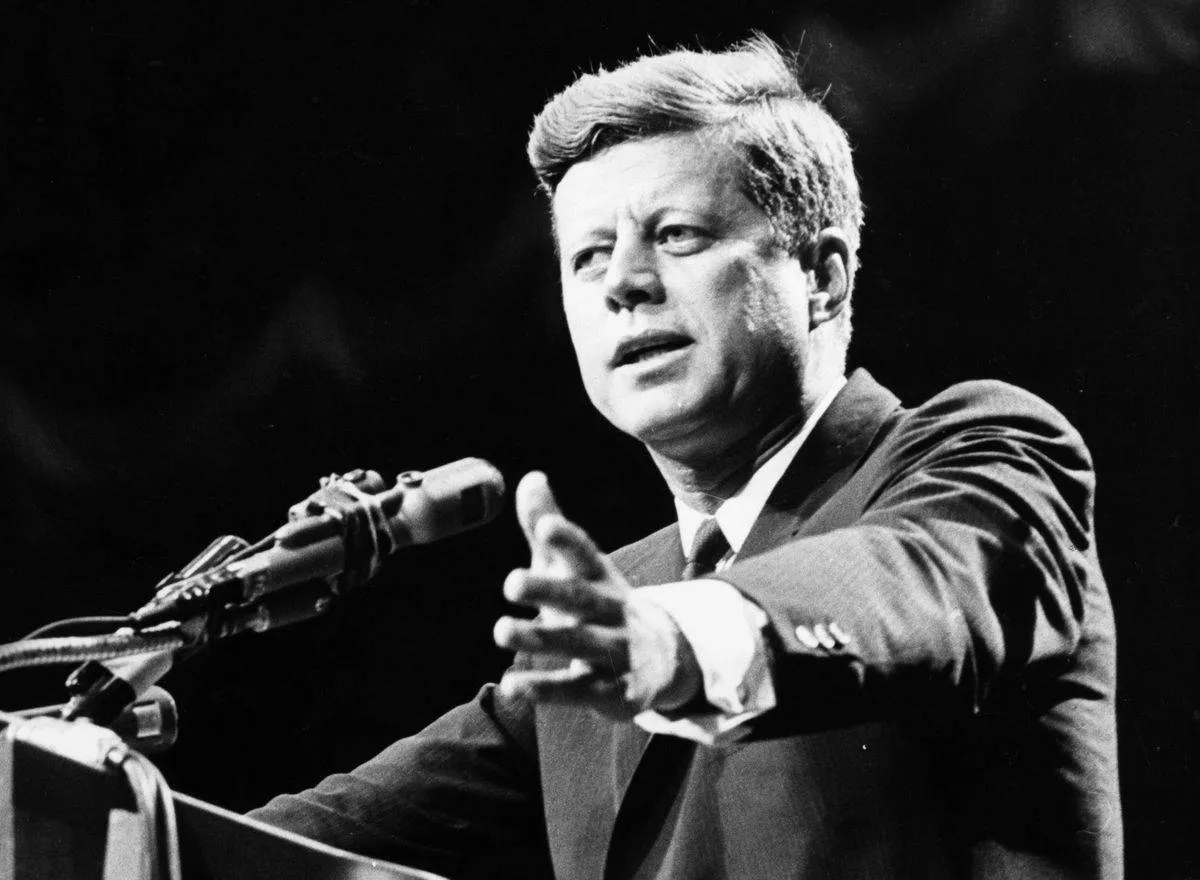
There's a reason why many people called the beginning of John F. Kennedy's administration "Camelot." John F. Kennedy was the voice of the new and young generation during his time in office.
Kennedy's contributions to the White House and the United States included limiting tension between the United States and the Communist countries while avoiding what seemed like nuclear war. Political Psychology estimated his IQ as ranging between 138 and 159.
Thomas Jefferson

Thomas Jefferson, the third president of the United States, was a bona fide genius. Not only was he the main writer of the Declaration of Independence, but he was also an architect and a musician, with a brain that was filled with an impressive amount of knowledge.
Thomas Jefferson attended the College of William and Mary and was involved in the world's first fraternity. Political Psychology estimated his IQ between an impressive 145 and a staggering 160.
Donald Trump
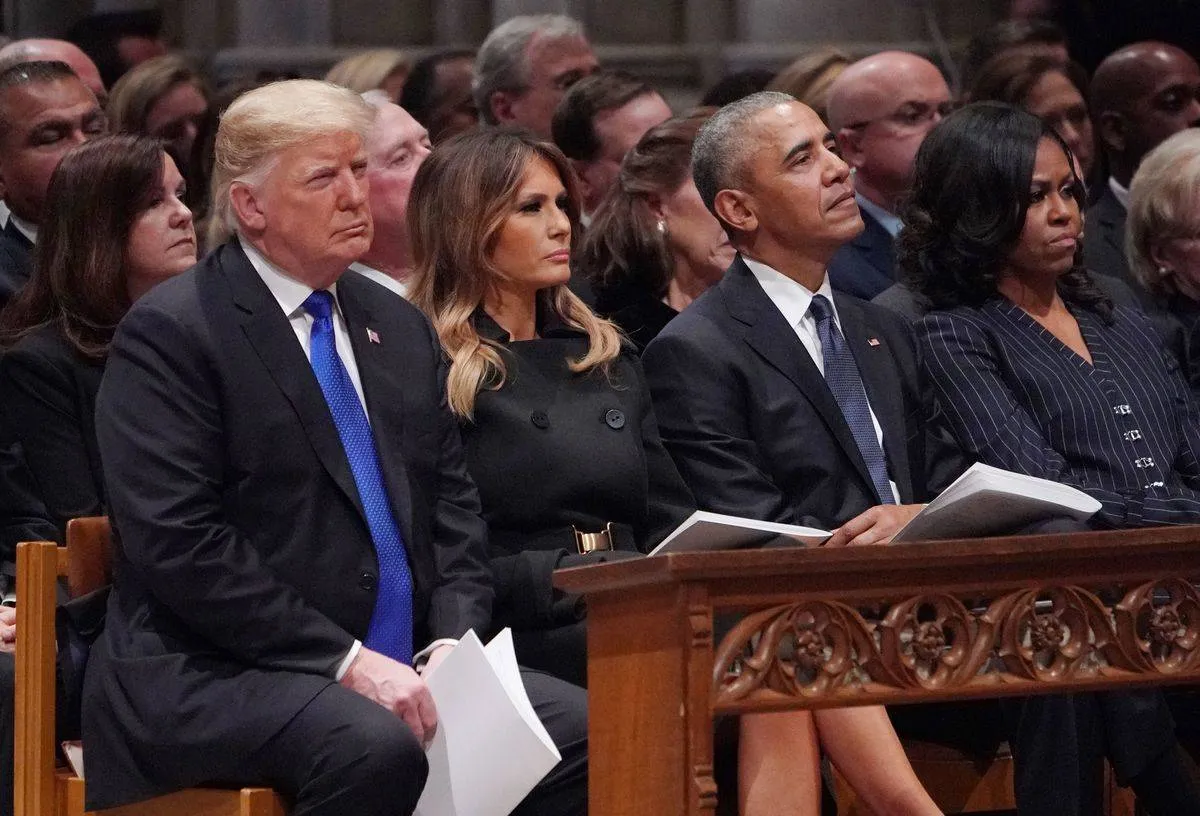
Donald Trump is the 45th and 47th president of the United States. The former businessman, real estate mogul, and television personality was first sworn into office on January 20, 2017. As with most leaders, his presidency has been marked by controversy.
He is (to date) the oldest first-term U.S. president and also is the first without any prior military or government service. Although some rumors put his IQ as low as 73 and as high as 156, no official test results have ever been released. Nonetheless, presidential historian Barbara Perry told Voice Of America News that he's cunning enough president to be of above average intelligence, likely in the 120 to 140 range.
John Quincy Adams
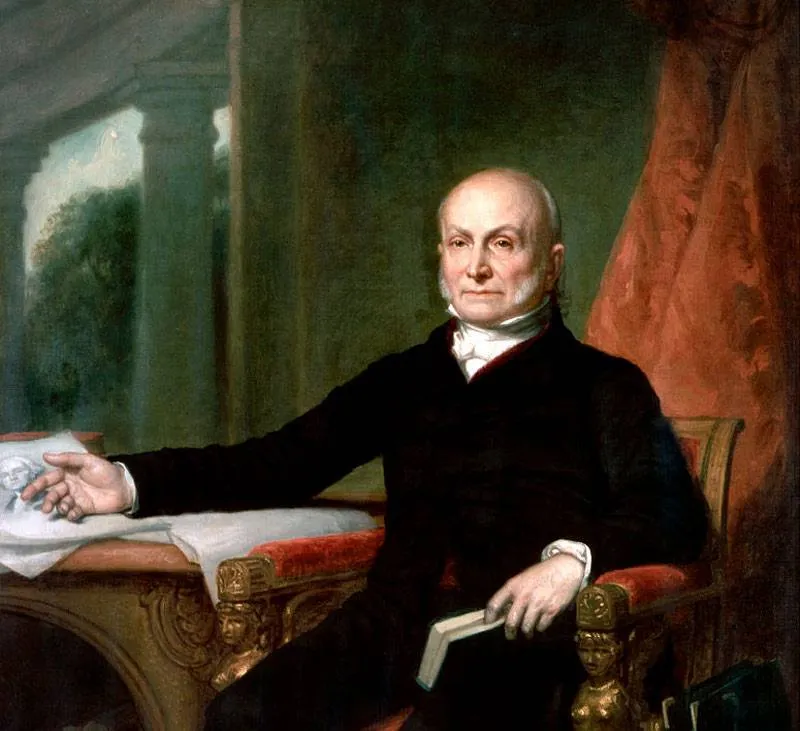
John Quincy Adams served as the sixth president of the United States from 1825 to 1829. In addition to this lofty office, he was Secretary of State, an ambassador, and a member of the United States Senate and United States House of Representatives.
The son of the second U.S. president, John Adams, his IQ is estimated by Political Psychology as falling between 165 and 175. Even by their standards, that suggests a staggering level of genius.
George W. Bush
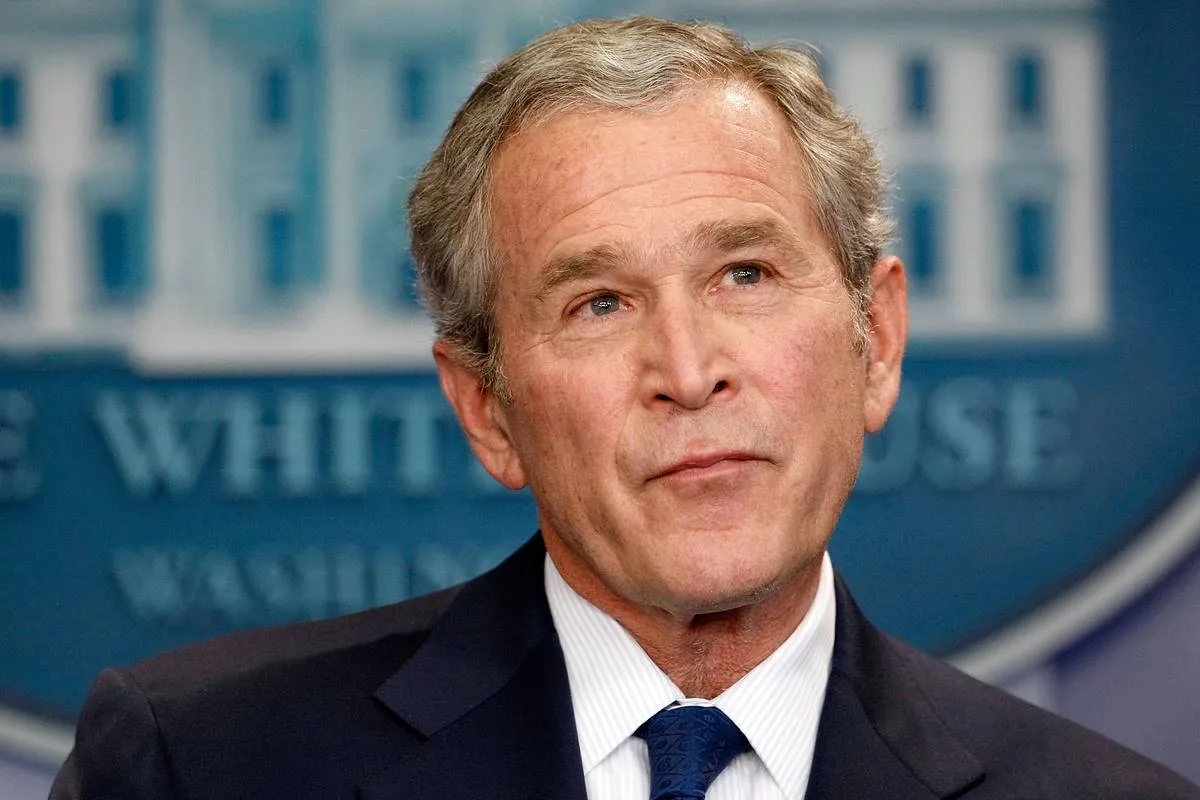
The Yale-educated man was the second son to become the American president after his father, with the first having been John Quincy Adams. George W. Bush, the 43rd president, served from January 20, 2001, to January 20, 2009.
He holds the interesting distinction of ranking among the most popular and the most unpopular of all the U.S. presidents in history. Although his detractors often attack his perceived intelligence, Political Psychology nonetheless estimated his IQ between 111 and 138.
Joe Biden

As with all of America's presidents, the 46th president Joe Biden has never publicized any confirmed IQ test results. Nonetheless, presidential historian Barbara Perry suggested that the president who spearheaded the nation's pandemic response didn't have the clearest markers for genius-level intelligence when speaking to Voice Of America News.
In her words, "I just think he is of average intellect, but obviously, he has parlayed that by virtue, I think, of his personality." Although she didn't give specific estimates for his IQ, her comments would suggest a range between 100 and 120.
Gerald Ford

Considering that his term only lasted the remainder of the time allotted for Richard M. Nixon's second term following his resignation on August 9, 1974, Gerald Ford wasn't considered a particularly ambitious president. Indeed, he's largely remembered for his controversial pardon of Nixon's role in the Watergate scandal after assuming office.
Nonetheless, he made history by being the first person to become president as a result of the U.S. Constitution's 25th Amendment. When estimating his IQ, Political Psychology reported a range between 113 and 140.
James Madison

The youngest of America's Founding Fathers, James Madison enshrined his legacy in his role in drafting the U.S. Constitution, which is why he's often described as the "Father of the Constitution." He also served as the nation's fourth president between 1809 and 1817.
Given his prodigious political acumen, Political Psychology had a pretty loft estimate for his potential IQ. Although the lowest estimate puts him at 120, the journal also suggested his IQ could have been as high as 160.
James K. Polk

Although James K. Polk's commitment to the United States to the Mexican-American War makes him a complicated figure in American history, he's nonetheless historically praised for achieving all of his campaign goals in one term.
These included acquiring California (hence the war), reducing tariffs, establishing an independent U.S. Treasury, and settling disputes with Britain over the Oregon territory. Political Psychology estimated Polk's IQ as falling between 116 and 143.
Dwight D. Eisenhower

After being celebrated as one of America's greatest military leaders and serving as a rare five-star general during World War II, Dwight D. Eisenhower enjoyed robust approval ratings and secured two terms as the nation's 34th president.
His legacy often leads analysts to consider him within the top ten of America's greatest presidents, and Political Psychology didn't regard him as any slouch in terms of intelligence, either. The journal's estimate for his IQ ranged between 117 and 145.
Harry S. Truman

Harry Truman succeeded Franklin Delano Roosevelt after the New Deal leader's unprecedented fourth term saw him die in office. Naturally, this meant Truman was commander-in-chief for much of America's final year waging World War II.
This means his name is forever tied with the still hotly-debated decision to use nuclear weapons to accelerate Imperial Japan's surrender. Regardless of the enduring controversy, Political Psychology estimated Truman's IQ as ranging between 115 and 139.
Woodrow Wilson

Although Woodrow Wilson led The United States during the nation's entry into World War I, he was also credited as the architect of the League Of Nations, an early version of the United Nations that he intended to prevent any future world wars.
Sadly, that turned out to be an unsuccessful venture, and the final two years of his presidency were marked by a severe stroke that left First Lady Edith Wilson as the unofficial commander-in-chief. Nonetheless, Political Psychology estimated Wilson's IQ as falling between 133 and 155.
Ulysses S. Grant

After distinguishing himself as general-in-chief of all Union armies during the American Civil War, Ulysses S. Grant was elected president in 1868, ultimately serving two terms. He oversaw the reconstruction of America's economy following the war and the ratification of the Fifteenth Amendment to the U.S. Constitution.
Although Grant was a practical and intensely decorated war hero, a 2006 study in Political Psychology had fairly humble estimates for his possible IQ. Specifically, their range puts his IQ between 110 and 130.
Herbert Hoover

Although one of the most enduring parts of Herbert Hoover's presidential legacy comes in the form of the mighty Hoover Dam straddling Nevada and Arizona, his presidency is not the most fondly remembered in American history. That's because the first and worst days of the Great Depression occurred during his administration.
However, Political Psychology's estimates suggested that these deeply unfortunate circumstances did not reflect poorly on Hoover's intelligence. That's because their analysis of his IQ puts Hoover between 118 and 141.
William Howard Taft

William Howard Taft had the distinction of being the only American to serve as both the nation's president and its Chief Justice, and he was instrumental in prosecuting 75 antitrust lawsuits to fight runaway corporate consolidation.
Although these distinctions would appear to be markers of great intelligence, Political Psychology's estimates for his IQ don't reflect that in comparison with other celebrated presidents. Their range puts Taft between 114 and 139.
Warren G. Harding

Although his presidency is considered a relatively minor footnote in American history now, Warren G. Harding's administration had more than its share of embarrassments by the time he died in office in 1923. However, he was a deeply popular president because the worst of them — like the Teapot Dome scandal — came to light after his passing.
While it's true that his appointment of friends to cabinet positions was likely ill-advised, Political Psychology was nonetheless not overly harsh in the journal's assessment of his intelligence. His IQ was estimated as falling between 107 and 139.
Grover Cleveland

Before the re-election of Donald Trump, Grover Cleveland was the only president in American history to serve two non-consecutive terms. He emerged as the first Democrat elected after the Civil War and pledged reforms before dealing with an economic depression in his second term.
Naturally, it would take some keen intelligence to handle a tough situation like that, and Political Psychology suggested it was likely Cleveland was blessed with it. The journal's estimate regarding his IQ ranges between 116 and 144.
William McKinley

Although William McKinley's Republican administration prompted a massive enough political realignment of industrial states around his party that his impact stood for decades, he also saw America enter the Spanish-American War while he was president.
McKinley's term came to a sudden end after he was assassinated by an anarchist named Leon Czolgosz, who was later executed for the crime. In the journal's assessment of McKinley's intelligence, Political Psychology estimated his IQ as existing between 116 and 143.
Benjamin Harrison

Although Benjamin Harrison's presidency isn't the most widely remembered in American history, it nonetheless featured unprecedented economic legislation like the McKinley Tariff and the Sherman Antitrust Act, as well as the Land Revision Act to create national forest reserves.
Although these were his administration's accomplishments, Political Psychology's analysis of his words and decisions led to the estimation of his IQ as falling somewhere between 117 and 145.
Chester A. Arthur

While Chester A. Arthur has a historical reputation as a caretaker president, this ignores the reforms of the U.S. civil service he championed, as well as the polarizing Tariff Act of 1883 and America's first standardized federal immigration law.
Depending on who's asked, these policy decisions have been both lauded and despised since. As for his intelligence, a 2006 study in Political Psychology estimated his IQ at between 129 and 152.
James A. Garfield

James A. Garfield is sometimes called one of the "lost" presidents for the simple reason that the 20th President of the United States only held office for about four months before his assassination. He was about to hold a conference of all republics throughout the Americas at the time of the incident.
Naturally, it's impossible to predict exactly how his administration would have gone if it had been allowed to persist but Political Psychology nonetheless had a respectable estimate of Garfield's IQ. The journal's data suggests his IQ was between 129 and 152.
Rutherford B. Hayes

Although the mess of Southern Reconstruction after the American Civil War had unenviable political fallout for many presidential administrations, the leadership of Hayes brought that period to an end. Indeed, some of his Republican successors also performed poorly in the South due to the party's association with Reconstruction.
As for Hayes himself, a 2006 study in Political Psychology was encouraging in its analysis of his intelligence, estimating that his IQ was between 120 and 146.
Martin Van Buren

A foundational figure in the Democratic Party, Martin Van Buren propelled his influence all the way to the White House, becoming the eighth President of the United States. However, he wasn't exactly a revolutionary figure in American politics, as he was as supportive of the institution of slavery and the forcible relocation of Native Americans as his predecessor, Andrew Jackson.
Although Van Buren was defeated in the following election due to the economic fallout of the Panic of 1837, Political Psychology found Van Buren to have demonstrated clear intelligence throughout his life. Indeed, the journal's estimates suggest his IQ was between 119 and 146.
William Henry Harrison

Considering that William Henry Harrison served the shortest presidential tenure in American history — 32 days — before his passing from what was likely typhus, it seems impossible to judge how effective he was as commander-in-chief. However, he ascended to the presidency after a distinguished military career that saw him prove himself during the War Of 1812.
Between his exploits and his campaign statements, it seems that enough data existed for Political Psychology to estimate that Harrison had an IQ falling between 120 and 146.
Andrew Johnson

Although his ascension to the presidency was the result of the mournful fallout of the first U.S. presidential assassination in history, Andrew Johnson was roundly criticized for his failure to live up to Abraham Lincoln's legacy.
His policy of conciliation with the South in the wake of the Civil War saw him go as far as to veto multiple attempts at civil rights legislation, which put him at odds with many Republicans. Nonetheless, Political Psychology estimated Johnson's IQ as resting between 110 and 139.
James Buchanan

When historians rank history's U.S. presidents, it's not unusual for them to place James Buchanan near the bottom of the ranking. This is largely due to his weakness on the issue of slavery and his attempts to find a compromise where none existed between America's northern and southern states on the issue.
Nonetheless, it doesn't seem like Buchanan's widely criticized flaws can be boiled down to a simple lack of intelligence, as Political Psychology estimated his IQ as falling between 111 and 139, which isn't much different from many other presidents.









